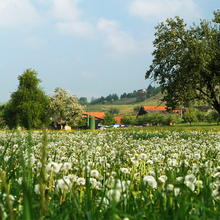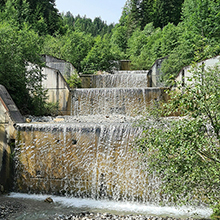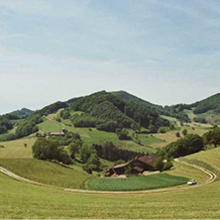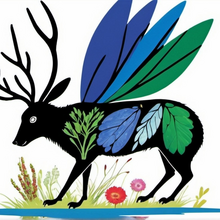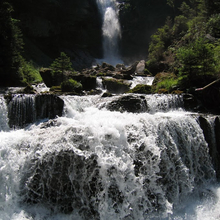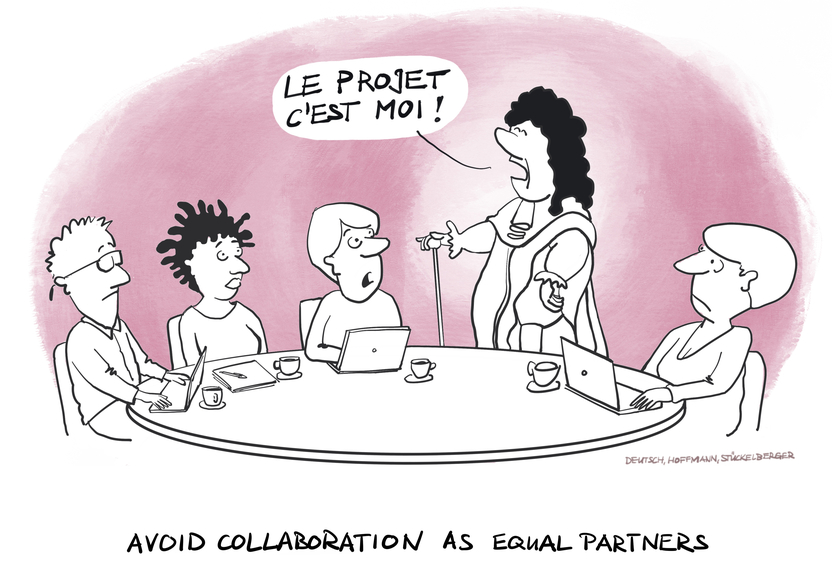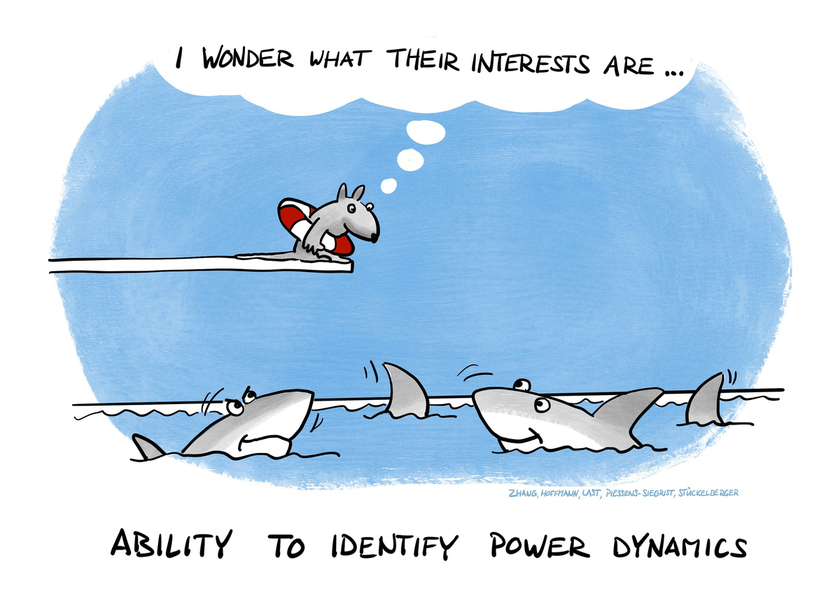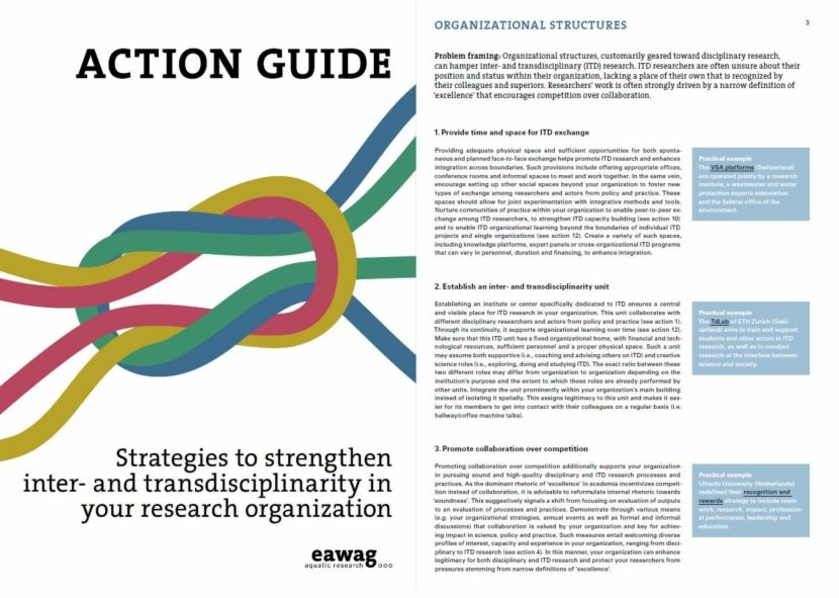Abteilung Umweltsozialwissenschaften
Inter- und Transdisziplinäre Forschung (ITD)
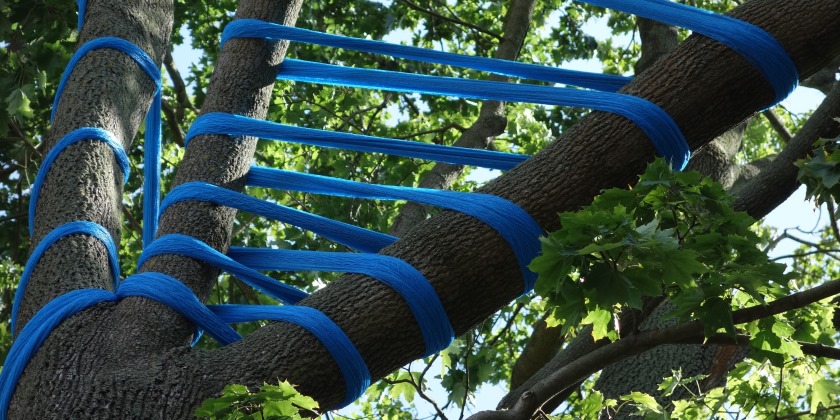
Die Bewältigung drängender komplexer gesellschaftlicher Herausforderungen unserer Zeit wie Klimawandel, Ernährungssicherheit oder der Verlust an biologischer Vielfalt erfordert inter- und transdisziplinäre Forschung (ITD), die nicht nur die Grenzen verschiedener wissenschaftlicher Disziplinen, sondern auch die von Forschung, Politik und Praxis überschreitet. Die Integration über solche Grenzen hinweg wird weithin als die grösste Herausforderung der ITD Forschung angesehen. Sie ist oft entscheidend für den Erfolg oder Misserfolg von ITD Projekten und Programmen.
Was ist inter- und transdisziplinäre Forschung?
Interdisziplinäre Forschung bedeutet Kollaboration von mehreren wissenschaftlichen Disziplinen mit dem Ziel eine gemeinsame Forschungsfrage zu beantworten, die aufgrund ihrer Komplexität nicht von einer Disziplin alleine beantwortet werden kann. Während multidisziplinäre Forschung keine vertiefte Integration der involvierten Disziplinen beinhaltet, hat interdisziplinäre Forschung den Anspruch, mehr als nur die Summe der einzelnen Disziplinen zu sein. Transdisziplinäre Forschung geht noch einen Schritt weiter und meint die Koproduktion von Wissen zwischen einem interdisziplinären Forschungsteam und Akteuren aus der Politik und Praxis mit dem Anspruch, gesellschaftsrelevante Fragestellungen zu beantworten und sozial akzeptierte Lösungen zu entwickeln.
Forschungsschwerpunkte
Integration bedeutet auch einen multidimensionalen Prozess, der ein breites Spektrum von Perspektiven aus verschiedenen Disziplinen (d.h. interdisziplinäre Integration) sowie aus Forschung, Politik und Praxis (d.h. transdisziplinäre Integration) miteinander verbindet. Dieser Prozess kann kognitive, soziale und emotionale Dimensionen umfassen. Integration ist ebenfalls ein integrierter Output, der aus diesem integrativen Prozess hervorgeht. Integration wird oft als die zentrale Herausforderung inter- und transdisziplinärer (ITD) Forschung angesehen und ist entscheidend für den Erfolg (oder Misserfolg) von ITD Forschungsprojekten oder -programmen. Angesichts der inhärenten Komplexität, die in ITD Projekten und Programmen zu bewältigen ist, bedarf es proaktiver, adaptiver und integrativer Führungsmodelle, damit die ITD Forschung erfolgreich ist. In unserer Forschung setzen wir uns daher mit folgenden Fragestellungen auseinander:
- Welche Rahmenbedingungen fördern oder hindern Integration in ITD Projekten, Programmen und Forschungsorganisationen? Wie? Warum?
- Welchen integrativen Herausforderungen begegnen Leitende und Forschende in ITD Projekten und Programmen? Welche Strategien, Praktiken und Tools wenden sie an, um diesen Herausforderungen zu begegnen?
- Welchen Herausforderungen begegnen "Early Career Researchers" in ITD Projekten und Programmen? Wie können sie in ihrer Arbeit an der Schnittstelle zwischen Forschung, Politik und Praxis unterstützt werden?
- Welche Rollen nehmen Leitende und Forschende in ITD Projekten und Programmen ein? Welche Kompetenzen benötigen sie, um diese Rollen einzunehmen? Wie können diese Kompetenzen vermittelt werden?
Wissenschaftliche Publikationen
Praxis-orientierte Outputs
Inter- und Transdisziplinäre Forschung
Dettwiler, D., Deutsch, L. and Hoffmann, S. (2024). Strategies to strengthen inter- and transdisciplinarity in your research organization. Eawag, Dübendorf
Aeschiried Integrators (2023). Towards a theory of change to institutionalise integration experts and expertise, Integration and Implementation Insights
Deutsch, L., Hoffmann, S. (2023). Integration in inter- and transdisciplinary research: how can the leadership challenges be addressed? In: Integration and Implementation Insights, Blog Post
Deutsch, L, Hoffmann, S. (2022). Geht das, verschiedene Perspektiven für eine Nachhaltigkeitstransformation unter einen Hut zu bekommen? – Einblicke in den Ansatz „Theory of Change“, ISOE Blog Post
Deutsch, L, Hoffmann, S. (2021). Developing Theories of Change for supporting transformations in the urban water sector. Lessons learned from an inter- and transdisciplinary research program. Swiss Academies of Arts and Sciences: td-net toolbox for co-producing knowledge, Practice Report
Nachhaltigkeitstransformationen
Hofmann, B., Ingold, K. (2023). Protect water from pesticides by focusing on how people use knowledge, Water Science Policy
Hofmann, B. (2023). Small green firms beat big polluters in clean shipping negotiations, TheLoop: ECPR's Political Science Blog
Hofmann, B., Ingold, K. (2023). Barriers to evidence use for sustainability: the pesticide case, European Commission "Knowledge for Policy" Blog
Knowledge Brief ‘Deutsch L, Beutler P, Binz C, Congiu G, Contzen C, Heiberg J, Hoffmann S, Kollman J, Maurer M, Morgenroth E, Pakizer K, Reymond P, Schelbert V, Truffer B, Van den Brandeler F (2023). Resource-oriented wastewater infrastructures for sustainable cities: ways forward. Wings Knowledge Brief No. 1. Eawag, Dübendorf
Knowledge Brief ‘Wainaina GK, Lüthi C, Deutsch L, Narayan AS, van Welie M, Cherunya PC, Hoffmann S (2023). Planning to transform: How to increase the effectiveness of infrastructure interventions in slumsWings Knowledge Brief No. 2. Eawag, Dübendorf
Hofmann, B., Ingold, K., Stamm, C., Finger, R., Hoffmann, S. (2022). Hürden für eine evidenzbasierte Pflanzenschutzmittelpolitik und -praxis, Agrarpolitik-Blog, Progressive Agrarwende
Narayan, A.S., Deutsch, L., Hoffmann, S., Pearce, B.J. (2020). Decentralisation: Are we on the same page? An interdisciplinary Workshop Brief, No. 1, Eawag, Dübendorf
Netzwerke
Team
Lehre
Integration in Science, Policy and Practice: Inter- and Transdisciplinary Concepts, Methods, Tools, ETH Zürich, Department of Environmental Systems Science. Jährlicher Kurs, 701-1571-00L, Frühjahrssemester.
Global Environmental Politics, Universität St.Gallen. Jährlicher Kurs, 7,379,1.00, Herbstsemester.
Transdisziplinäre Projektwoche im Minor Transformationen Künste Wissenschaften, Zürcher Hochschule der Künste, MA Transdisziplinarität in den Künsten, Departement Kulturanalysen und Vermittlung. Jährlicher Kurs, MTR-MTR-1009C.24F.005, Frühjahrssemester.
Aktuelle Projekte
Abgeschlossene Projekte
Kollaborationspartner
EMPA, EPFL, ETH Zürich (D-USYS, D-BAUG, WFSC, PSC), FiBL, Swiss TPH, TdLab ETH Zürich, Universität Bern, Universität Konstanz, WSL, ZHdK







